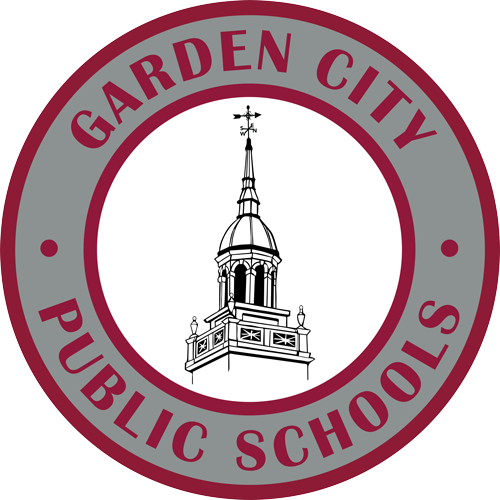9-12 PHYSICAL EDUCATION AND HEALTH
PHYSICAL EDUCATION
The Garden City High School Physical Education (PE) curriculum for grades 9 through 12 is designed to promote lifelong health and wellness by providing students with the knowledge, skills, and experiences necessary to maintain an active lifestyle. Aligned with the New York State Physical Education Learning Standards (2020), the program emphasizes advanced skill development, personal fitness planning, responsible behavior, and an appreciation for the value of physical activity.
Key Components of the 9-12 PE Curriculum:
1. Advanced Skill Development:
• Proficiency in Complex Motor Skills: Students engage in a variety of physical activities, including team sports, individual sports, dance, and fitness exercises, to refine and master complex motor skills.
• Application of Movement Principles: Emphasis is placed on understanding and applying movement concepts and strategies to enhance performance across different physical activities.
2. Personal Fitness and Health Planning:
• Fitness Assessments: Students regularly assess their fitness levels, focusing on components such as cardiovascular endurance, muscular strength, flexibility, and body composition.
• Goal Setting and Program Design: Based on assessment results, students set personal fitness goals and design individualized fitness plans to achieve and maintain health-enhancing physical activity levels.
3. Responsible Personal and Social Behavior:
• Leadership and Teamwork: The curriculum fosters leadership skills and teamwork through group activities, promoting effective communication, cooperation, and respect among peers.
• Ethical Behavior and Safety: Students learn to exhibit responsible behavior by understanding and adhering to rules, ensuring safety, and demonstrating respect for self and others in all physical activity settings.
4. Appreciation of Physical Activity:
• Lifelong Wellness: Students explore various physical activities to identify those they enjoy, understanding the role of regular activity in promoting overall wellness, stress management, and self-expression.
• Career Exploration: The program introduces students to potential career opportunities related to physical activity and fitness, encouraging them to consider professions in health, wellness, and sports industries.
Throughout their high school years, Garden City students are encouraged to take ownership of their physical health by actively participating in diverse activities and applying the principles learned to their daily lives. This comprehensive approach ensures that upon graduation, students are well-equipped with the habits and knowledge necessary to lead healthy, active lifestyles.
UNITS:
Outdoor Fitness (i.e. Hiking, Cycling) .
Tennis
Football
Soccer
Floor Hockey
Tennis
Volleyball
Weight Room Fitness
Badminton
Basketball
Yoga
Pickleball
European "Team" Handball
Golf
Social Fitness
Base Games (Softball, Baseball, Kickball)
HEALTH EDUCATION
The Garden City High School Health Education curriculum for grades 9 through 12 is designed to equip students with the essential knowledge and skills necessary to make informed decisions about their health and well-being. Aligned with the New York State Education Department’s Health Education Standards, the program adopts a comprehensive, skills-based approach that addresses various dimensions of health, including physical, mental, emotional, and social aspects.
Key Components of the 9-12 Health Education Curriculum:
1. Mental and Emotional Health:
• Stress Management and Resilience: Students explore techniques to manage stress effectively, build resilience, and maintain mental health.
• Healthy Relationships: The curriculum emphasizes the development of healthy relationships, effective communication skills, and conflict resolution strategies.
2. Nutrition and Physical Activity:
• Informed Food Choices: Instruction focuses on understanding nutritional needs during adolescence, making informed dietary choices, and recognizing the relationship between diet and overall health.
• Active Living: Students learn about the benefits of regular physical activity and how to incorporate exercise into their daily routines.
3. Personal Health and Safety:
• Disease Prevention: Education covers the prevention of communicable and non-communicable diseases, including information on vaccinations and hygiene practices.
• Safety and First Aid: Students acquire knowledge about personal safety, first aid, and strategies to prevent injuries.
4. Substance Abuse Prevention:
• Awareness and Education: Lessons address the effects of alcohol, tobacco, and other drugs on the body and mind.
• Decision-Making Skills: Students are taught to analyze influences, resist peer pressure, and make choices that support a substance-free lifestyle.
5. Human Growth and Development:
• Reproductive Health: Instruction includes information on reproductive health, emphasizing the importance of abstinence and safe practices.
• HIV/AIDS Education: As mandated by New York State law, students receive age-appropriate information on HIV/AIDS transmission, prevention, and the impact of the disease.
6. Social and Emotional Learning (SEL):
• Self-Awareness and Empathy: Activities are designed to help students recognize their emotions and understand others’ feelings.
• Goal Setting and Advocacy: Students learn to set personal health goals and advocate for themselves and others in health-related matters.
The curriculum employs interactive teaching methods, including group discussions, role-playing, and project-based learning, to actively engage students. Assessments are both formative and summative, aiming to evaluate students’ understanding and application of health concepts and skills.
By the end of twelfth grade, students in the Garden City High School Health Education program are expected to demonstrate proficiency in health literacy, enabling them to navigate health information and services effectively. This foundation prepares them for the challenges of adulthood and fosters a commitment to lifelong health and wellness.igh School Health Education program are expected to demonstrate proficiency in health literacy, enabling them to navigate health information and services effectively. This foundation prepares them for the challenges of adulthood and fosters a commitment to lifelong health and wellness.
